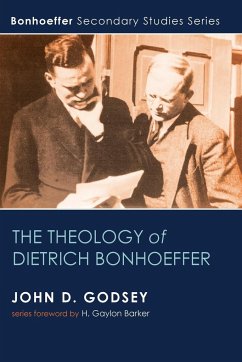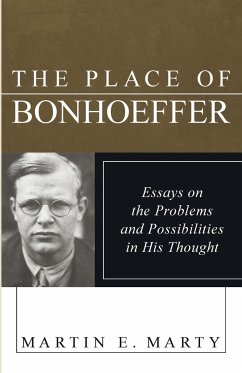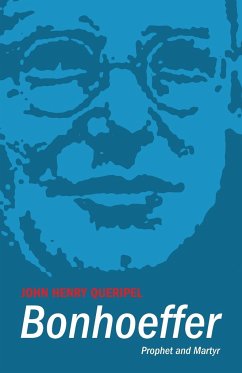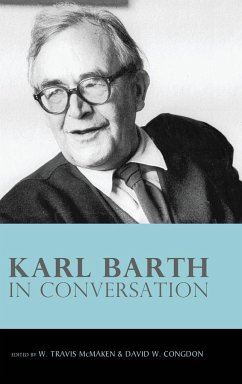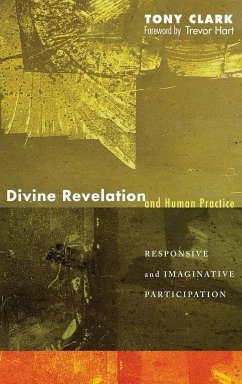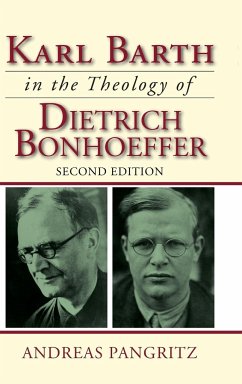
Karl Barth in the Theology of Dietrich Bonhoeffer

PAYBACK Punkte
20 °P sammeln!
This important work explores the complex relationship between two of the twentieth century's most formidable Christian thinkers--Karl Barth and Dietrich Bonhoeffer. Seizing on a much-discussed criticism that Bonhoeffer made of Barth's theology in his prison letters--that Barth was guilty of a ""positivism of revelation""--Andreas Pangritz challenges scholars who have used this statement, despite being left undeveloped by Bonhoeffer, as a wedge to separate the two theologians. Through a careful study of Barth's and Bonhoeffer's works, of their correspondence, and of Barth's comments and revisio...
This important work explores the complex relationship between two of the twentieth century's most formidable Christian thinkers--Karl Barth and Dietrich Bonhoeffer. Seizing on a much-discussed criticism that Bonhoeffer made of Barth's theology in his prison letters--that Barth was guilty of a ""positivism of revelation""--Andreas Pangritz challenges scholars who have used this statement, despite being left undeveloped by Bonhoeffer, as a wedge to separate the two theologians. Through a careful study of Barth's and Bonhoeffer's works, of their correspondence, and of Barth's comments and revisions after Bonhoeffer's death, Pangritz clarifies the close yet sometimes strained relationship between Barth and Bonhoeffer and cautiously makes the case that Bonhoeffer's criticism has been overemphasized and did not mark a significant breach between the two great theologians. Much more than a study of a disputed discourse in historical theology, this engaging volume also raises concerns of continuing relevance regarding the role of theology in our secular society.



